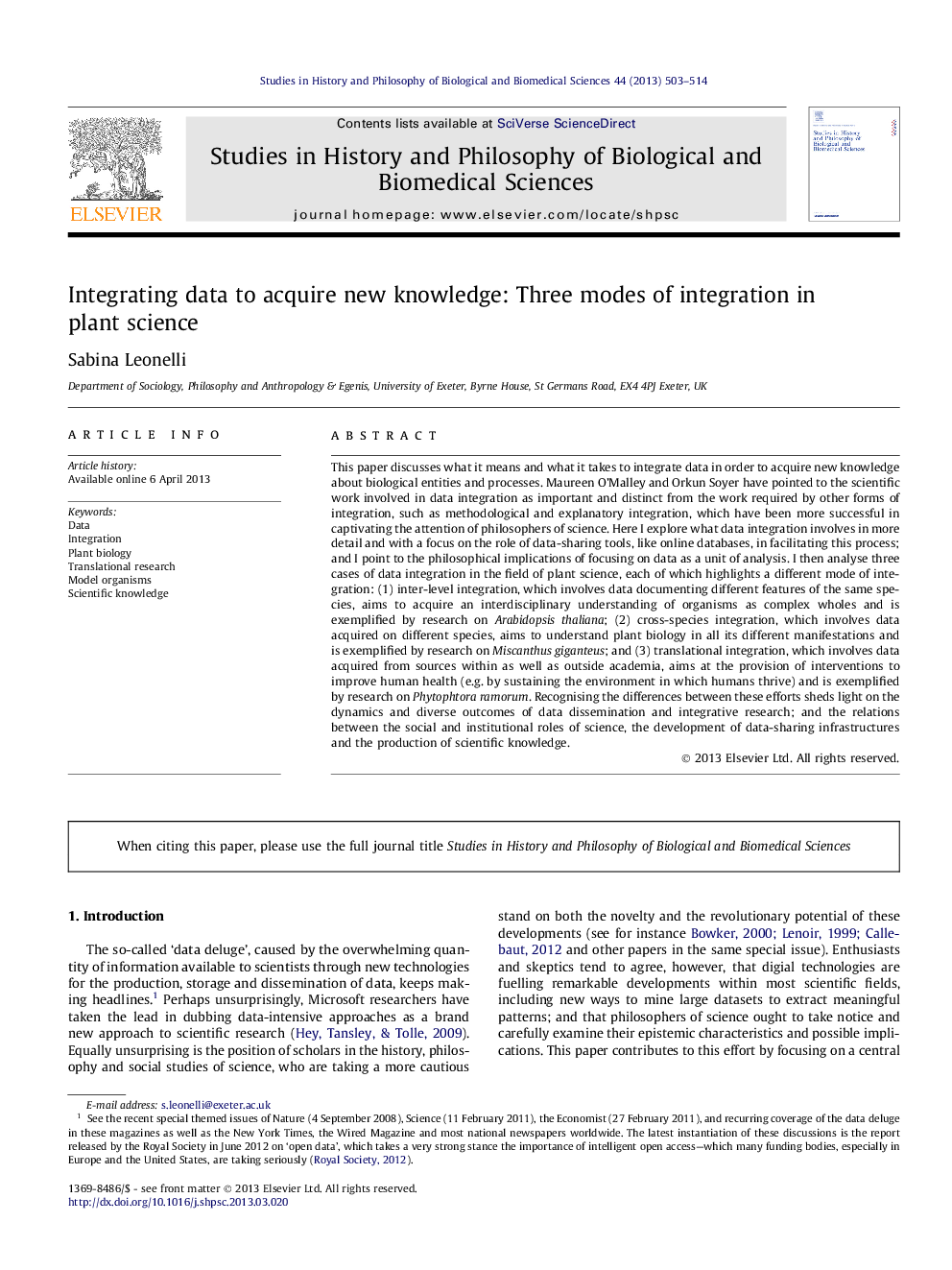| کد مقاله | کد نشریه | سال انتشار | مقاله انگلیسی | نسخه تمام متن |
|---|---|---|---|---|
| 1161225 | 1490524 | 2013 | 12 صفحه PDF | دانلود رایگان |

• Data integration plays a central role in contemporary biological research.
• Plant science integrates data acquired across species and levels of organization.
• I discuss three research traditions that exemplify different modes of integration.
• Focus on scaffolds needed to interpret data and forms of knowledge that may result.
• Considering full spectrum of scientific activities is key to epistemological analysis.
This paper discusses what it means and what it takes to integrate data in order to acquire new knowledge about biological entities and processes. Maureen O’Malley and Orkun Soyer have pointed to the scientific work involved in data integration as important and distinct from the work required by other forms of integration, such as methodological and explanatory integration, which have been more successful in captivating the attention of philosophers of science. Here I explore what data integration involves in more detail and with a focus on the role of data-sharing tools, like online databases, in facilitating this process; and I point to the philosophical implications of focusing on data as a unit of analysis. I then analyse three cases of data integration in the field of plant science, each of which highlights a different mode of integration: (1) inter-level integration, which involves data documenting different features of the same species, aims to acquire an interdisciplinary understanding of organisms as complex wholes and is exemplified by research on Arabidopsis thaliana; (2) cross-species integration, which involves data acquired on different species, aims to understand plant biology in all its different manifestations and is exemplified by research on Miscanthus giganteus; and (3) translational integration, which involves data acquired from sources within as well as outside academia, aims at the provision of interventions to improve human health (e.g. by sustaining the environment in which humans thrive) and is exemplified by research on Phytophtora ramorum. Recognising the differences between these efforts sheds light on the dynamics and diverse outcomes of data dissemination and integrative research; and the relations between the social and institutional roles of science, the development of data-sharing infrastructures and the production of scientific knowledge.
Journal: Studies in History and Philosophy of Science Part C: Studies in History and Philosophy of Biological and Biomedical Sciences - Volume 44, Issue 4, Part A, December 2013, Pages 503–514